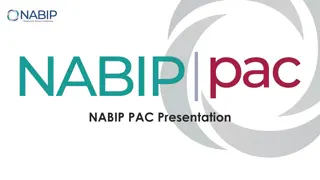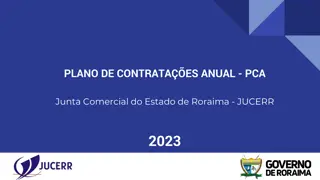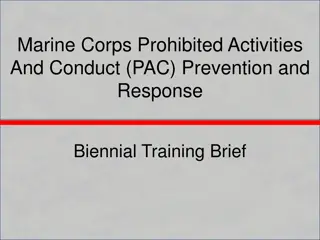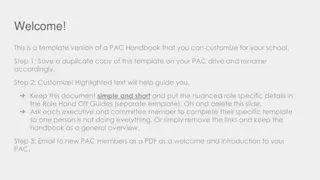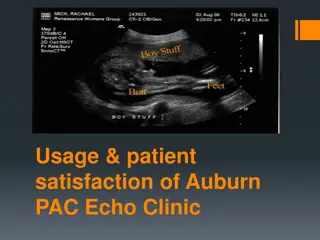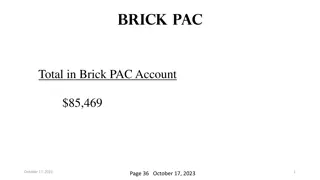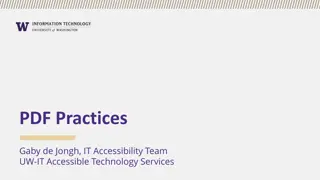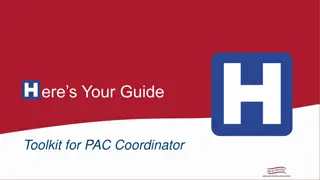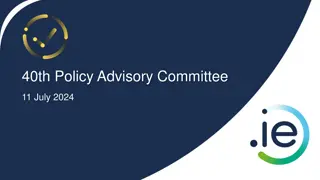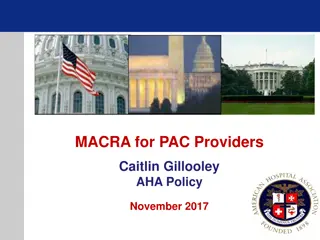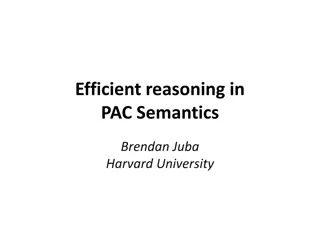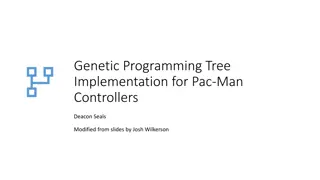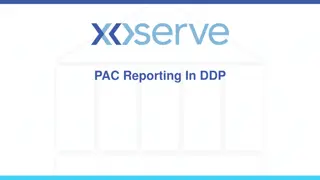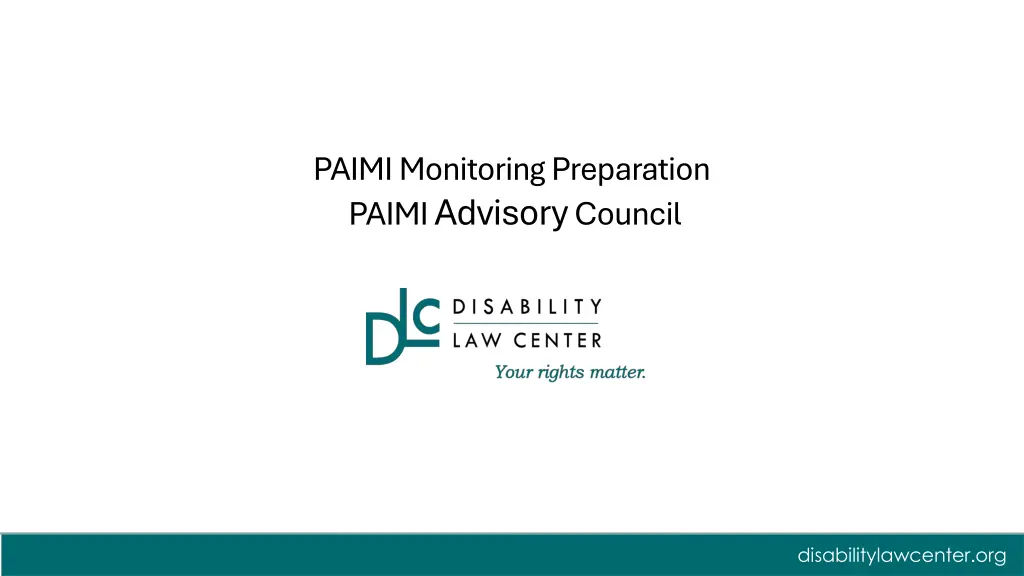
Understanding the PAIMI Program: Services and Eligibility
Learn about the Protection and Advocacy for Individuals with Mental Illness (PAIMI) Program, its history, purpose, and eligibility criteria for services. Discover how PAIMI protects the rights of individuals with mental illnesses and investigates incidents of abuse and neglect.
Download Presentation

Please find below an Image/Link to download the presentation.
The content on the website is provided AS IS for your information and personal use only. It may not be sold, licensed, or shared on other websites without obtaining consent from the author. If you encounter any issues during the download, it is possible that the publisher has removed the file from their server.
You are allowed to download the files provided on this website for personal or commercial use, subject to the condition that they are used lawfully. All files are the property of their respective owners.
The content on the website is provided AS IS for your information and personal use only. It may not be sold, licensed, or shared on other websites without obtaining consent from the author.
E N D
Presentation Transcript
PAIMI Monitoring Preparation PAIMI Advisory Council disabilitylawcenter.org
Dates of PAIMI Monitoring Substance Abuse and Mental Health Services (SAMHSA) Onsite Visit: October 29th - 31st, 2024 Opening Session: Tuesday, October 29th at 9:00 am PAC interview: 10:45 am-12:00 pm In person and virtual options will be available Exit Conference: Thursday, October 31st at 3:30-5:00pm
History of PAIMI PAIMI program established 1986 PAIMI requires P&As to protect & advocate for rights of people with MH disabilities and investigate reports of abuse/neglect in facilities where people with mental health disabilities receive services PAIMI Act initially passed protected people with MH disabilities while in a facility or within 90 days of discharge PAIMI Act was amended in 2000 to serve people with MH disabilities residing in the community
What is the purpose of the PAIMI Program? To protect and advocate for the rights of individuals with mental illness and To investigate incidents of abuse and neglect of individuals with mental illness if the incidents are reported to the system or if there is probable cause to believe that the incidents occurred in accordance with 42 U.S.C. 10803 and 10805 and To provide protection and advocacy service for individuals with mental illness in accordance with 42 CFR 51.7
Who is Eligible for PAIMI Services? Individuals with a significant mental illness or emotional impairment, as determined by a qualified MH professional, and who: Is an inpatient or resident of a facility providing care and treatment, or Is being admitted or transported to a facility providing care or treatment; or Is involuntarily confined in a municipal detention facility as a pre-trial detainee (cannot be serving a sentence), or Has been discharged from a facility and the incident occurred with 90 days of discharge, or Lives in a community setting, including their own home (2000 amendment)
Who Is Eligible for PAIMI Services Cont. Persons with a mental health diagnosis not considered significant, or whose diagnosis is not documented by a licensed mental health provider, are ineligible under PAIMI for limited and full representation. For brief advice (legal advice provided in one consultation with a follow up letter), DLC verifies eligibility with the caller but does not require documentation.
How is PAIMI Work Funded? The PAIMI program is administered by the Substance Abuse and Mental Health Services Administration (SAMHSA), Center for Mental Health Services (CMHS), at the US Department of Health & Human Services. PAIMI is the DLC s largest federal grant (FY25 - $473,700)
PAIMI Staff in FY24 37 DLC Employees Attorneys: 12 Advocates: 14 Interns: 5 Admin: 6
PAC Information PAC membership: no more than 16 members (13 members currently). PAC chair is a member of the Board: Laura Stallings Four-year term Diversity of PAC includes people with lived experience, family members and professionals who work in the field
Process to Select New PAC Members Nominations are solicited from Council members, and from established mental health family support, self-advocacy or consumer support, advocacy and provider organizations in Utah but shall not be limited to these groups. The Council shall by a majority of a quorum, appoint new members to the Council and who, to the extent possible, shall be diverse, including people of color, recipients or former recipients of mental health services, people who have physical disabilities, and people from different geographic locations in the state. The Council shall deliver its decision (on appointees) to the Executive Director and the Board of Trustees for comment.
Purpose of the Council Making recommendations on any statutes, policies, procedures, or programs which are relevant to rights protection and advocacy for persons with mental illness. Making recommendations for mental health advocacy services to the Board of Trustees of the Disability Law Center. Identifying needs of persons with mental illness and communicating them (along with recommendations for action) to the Board of Trustees and administration of the Disability Law Center. Advising the Disability Law Center staff and Board of Trustees on policies and priorities to be carried out in protecting and advocating for the rights of individuals with mental illness in the state of Utah. Completing a section of the annual PAIMI program performance report to the Substance Abuse and Mental Health Services Administration (SAMHSA) that describes the activities of the Council and its assessment of the operation and quality of services of the PAIMI Program. Working with the Board of Trustees of the Disability Law Center and the PAIMI program staff members jointly to develop the annual statement of objectives and priorities for the PAIMI program of the Disability Law Center.
Conflict of Interest Policies None of the persons serving on the Council at any time may be interested persons. An interested person is any person being compensated by the DLC for services rendered to it within the previous twelve months, whether as a full-time employee, independent contractor, or otherwise, excluding any reasonable reimbursement paid directly to a Council member. Each Council member is responsible to inform the Disability Law Center of potential conflicts of interest because of the nature of their employment or involvement with agencies, companies, or individuals that frequently interact with the DLC. Each Council member will excuse himself/herself from any discussion involving an issue where he/she may have a conflict of interest.
PAC Training DLC staff provides training annually and/or as needed All PAC members are required to watch the NDRN/SAMHSA training video NDRN Annual Conference: PAC member attended 2024
Board and PAC Relationship PAC advises the Board on issues for people with mental health and PAIMI priorities PAC chair serves on board and provides updates Board members are welcome to attend PAC meetings
Priority Setting Process PAIMI Act requires P&As to provide the public with an opportunity to comment on its priorities and activities. Comment can be provided in person, over the phone, by email, by mail, by social media or via the website Public Hearing was held on August 1st, 2024 The Board and PAC are required to work jointly to develop the annual priorities. Board approves priorities annually
PAIMI Reporting The DLC submits a Program Performance Report (PPR) to SAMHSA covering the past Fiscal Year (FY), which runs Oct. 1 Sept. 30. The PAC provides its own Advisory Council Report as part of the DLC s annual PPR, describing the PAC s activities and its assessment of DLC operations. Due January 1st, 2025
Grievance Policy Call the Disability Law Center Grievance Form will be sent to you to complete DLC will review/investigate Response letter will be sent within 30 business days (results of investigation and action, if any, will be taken) Appeal to the Board of Trustees You must submit Grievance Appeal Form to the Board within 30 days from the day you receive your letter. If you need more time, you must make a request for additional time Board will investigate complaint Board will send a decision within 60 business days Board decision is final
DLC Teams Access & Rights Community Integration Employment Abuse & Neglect Education Fair Housing Rep Payee Communications Public Policy Short-term Assistance



